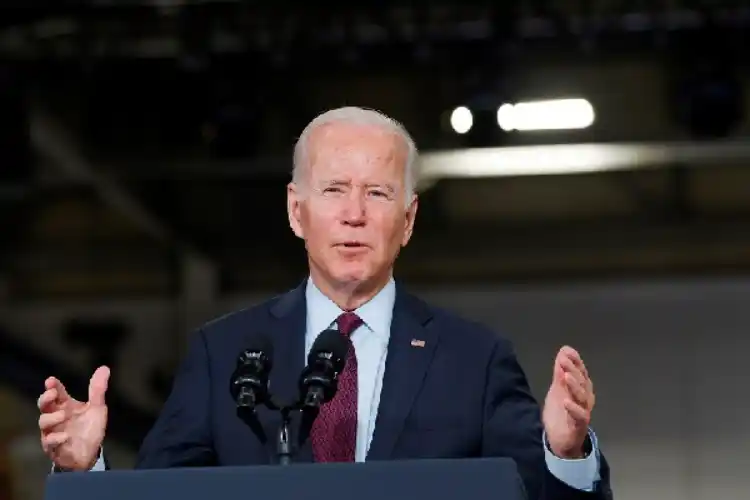
Washington
The Biden administration on Friday unveiled its Indo-Pacific strategy, which cites the "mounting challenges" posed by the rise of China as a key driver of the "intensifying American focus" on the Indo-Pacific, particularly stressing the importance of "a strong India" as a partner in a positive regional vision.
The White House released a 12-page fact sheet stating that President Joe Biden's administration would focus on every corner of the region from South Asia to the Pacific Islands to strengthen its long-term position and commitment, including an emphasis on supporting and partnering with India.
"The PRC (People's Republic of China) is combining its economic, diplomatic, military, and technological might as it pursues a sphere of influence in the Indo-Pacific and seeks to become the world's most influential power."
"Our collective efforts over the next decade will determine whether the PRC succeeds in transforming the rules and norms that have benefitted the Indo-Pacific and the world," the document read.
Citing China's border disputes with India, the strategy notes that US allies like India "bear much of the cost of the PRC's harmful behavior."
Biden's Indo Pacific strategy also stresses working together with US allies and partners in the region, especially the Quad -- which is made up of India, the US, Japan, and Australia.
"We are deepening our five regional treaty alliances--with Australia, Japan, the (Republic of Korea), the Philippines, and Thailand--and strengthening relationships with leading regional partners, including India, Indonesia, Malaysia, Mongolia, New Zealand, Singapore, Taiwan, Vietnam, and the Pacific Islands," the strategy reads.
The document underlines the emphasis given to an advanced and free and open Indo-Pacific, building connections within and beyond the Indo-Pacific region, driving regional prosperity and security, and building regional resilience to transnational threats.
According to several policy experts, Biden's Indo-Pacific Strategy lays out Washington’s stronger diplomatic and security commitment to push back against China.
"Altogether, there is not too much that is surprising in the Biden administration's Indo-Pacific Strategy. It lays out the overall objectives and more specific ways of achieving them," Dhruva Jaishankar, Director of US Initiative, Observer Research Foundation told ANI.
A senior fellow in the foreign policy programme at Brookings Institution Tanvi Madan said that the strategy reinforces the importance of the Indo-Pacific for the US and its intention to remain committed to the region.
"It's not shy about identifying mounting challenges from China as a key driver of the intensifying American focus on the region. And among instances of China's harmful behaviour in the region includes the conflict along the LAC with India," she said.
"The strategy recognizes the indispensable role of allies and partners in the region, and India, with frequent mentions, figures prominently in the latter category. The Quad is also mentioned as a premier regional grouping.
"India will find much convergence on the items listed in the action plan, which identifies support India's continued rise and regional leadership" as a key item--and makes clear the US does not see India's role and interests as restricted to South Asia," Madan said.
The release of the document was timed to coincide with Secretary of State Antony Blinken's visit to the region, where earlier Friday Blinken met his Quad counterparts including External Affairs Minister S Jaishankar in Melbourne.
A senior administration official told reporters that Secretary Blinken's trip to Australia, Fiji, and Hawaii this week shows that the US recognizes the importance of "sustained engagement" with the region -- even as it faces the more acute crisis of Russia's possible invasion of Ukraine.
"Our objective is not to change China but to shape the strategic environment in which it operates," the document states.
The strategy also lists climate change, pandemic recovery, and North Korea as other major challenges facing the region.
The document is the first regional strategy that the Biden administration has released.
